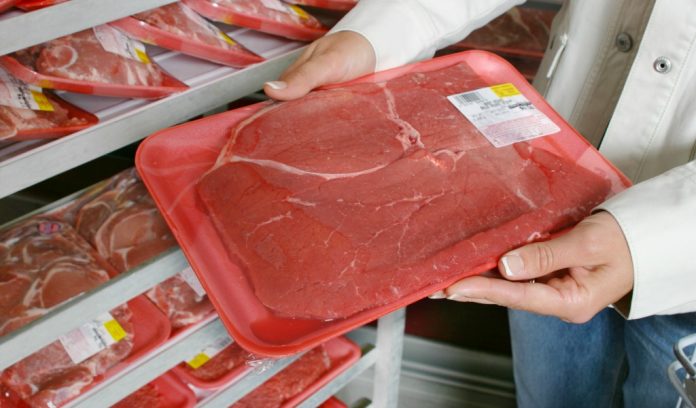It’s no surprise that the nation’s five largest meatpackers, according to a May 12 government report, “engaged in a concerted effort with Trump Administration political officials to insulate themselves from coronavirus-related oversight.”
After all, the House Select Committee on the Coronavirus Crisis (the Committee), the body charged with oversight of government’s response to the pandemic, released a 23-page “Memorandum” last October that mapped how meatpackers and the Trump Administration joined forces to keep employees working in coronavirus-rife meat plants.
Those efforts paid off big time for big meat but proved deadly for their employees. According to the committee, tens of thousands became infected with coronavirus and nearly 300 died of it.
Still, Trump’s big ag supporters were uncharacteristically silent after the May 12 report was released. None rose to declare it fake news or partisan hackery.
They didn’t because they couldn’t. The 12-member committee is decidedly bipartisan; its seven Democrats and five Republicans feature James Clyburn, the Dems’ third highest ranking House member, and Steve Scalise, the Republicans’ second most powerful member.
Bushels of evidence
As for facts, the committee has bushels gleaned from 29 public hearings and 151,000 pages of evidence. Twenty-six of the May 12 report’s 61 pages are footnotes documenting every detail of the meatpackers’ actions to influence government, often the U.S. Department of Agriculture.
The evidence is remarkable for how brazen the meatpackers and their big ag allies — especially the North American Meat Institute — were in pushing their private agenda on public officials and how reflexively responsive government — again, especially USDA — was to the backdoor lobbying and backroom deals.
For example, meatpackers knew their plants were coronavirus hotbeds even as they lobbied to keep them open. An “April 2020 email from a doctor in a hospital near JBS’ … facility,” tells JBS that “‘100% of all COVID-19 patients we have in the hospital are either direct employees or family member[s] of your employees,’” and warn[s] that “your employees will get sick and may die if this factory continues to be open.’”
Pattern of interference
The meatpackers prevailed because, the committee reports, of a “pattern of interference” by Trump-appointed USDA officials “with state and local health departments… with career [USDA] staff being ‘walled off,’ and leaving ‘no paper trail’ of such meetings.”
The report names names. One was USDA’s “Under Secretary for Food Safety Mindy Brashears” whose efforts “delighted” the packer lobbyists who later crowed how “‘fortunate’” it was “to have USDA as their ‘primary regulator’ because it was ‘representing [the] industry’s interests in every important interagency conversation.’”
Brashears was more than helpful: “A few months later, a meatpacking lobbyist told [another meatpacking] executive that Brashears ‘hasn’t lost a battle for us’ in connection with efforts to block a local health department order to regulate coronavirus measures in a (named) facility.”
Meatpackers in control
There’s more. The report details how the meatpackers drafted the federal order to keep their plants open and how the Trump White House “‘requested’’ that they then “issue positive statements and social media about the President’s action…”
For example, meatpackers were so sure they could push Trump Administration officials to issue an Executive Order to keep meatpacking plants open that Julie Anna Potts, the CEO of packer lobbyist NAMI, emailed Tyson Foods boss Noel White April 18, 2020, to note, “As of my conversations with USDA, they still think that they are… in better shape with POTUS than other agencies.”
But, Potts related, “I have said we have to see some results!”
On April 28, her meatpacker members got their results: the White House ordered plants to remain open. Big meat’s capture of government was complete.
But “The results,” reports the committee, “… were tragic: during the first year of the pandemic, workforces” for the Big Five packers “alone saw at least 59,000 worker infections, at least 269 deaths, and countless more cases and deaths among meatpacking-adjacent communities…”
And, most likely, the only punishment any of the Big Five packers — Tyson Foods, JBS USA, Smithfield, Cargill, and National Beef — will ever face for all the predicted illness and death is this detailed, shame-filled, soon-to-be-forgotten report.














